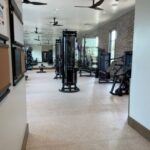
Recovery from substance use disorders is commonly mistaken to be a mental challenge that must be overcome by the individual. “It’s mind over matter,” some may say. Of course, the mental health aspects of substance use disorder are rarely that easy, and the reality is that when you are facing substance use disorder recovery, your physical health is just as important as your mental health. When a person in recovery eats nutritious foods, spends time in the vitamin D-rich sunshine, and routinely exercises, recovery can do more than repair the mind. True recovery should also address repairing the damage to the body left behind by substance use.
Additionally, when you notice positive changes in your body, it can manifest positive changes in your mind. In other words, strong physical health can promote confidence in you. The positive emotional changes that arise from this new confidence are a direct contrast to the feelings of loneliness and guilt that are often associated with substance use.
The power of physical self-care can help you on your road to recovery. Fortunately, this doesn’t mean you’ll need to spend hours at the gym to get results. It simply means taking part in some healthy physical activity every day. Substance use disorders are the result of using repeated, negative behavior to cope with some other element of your life. Replacing that repeated negative behavior with a healthier one can help you find the strength you need to address other areas of your recovery and establish a solid foundation to continue to build upon.
At Lilac Recovery Center, we know how important your physical wellness is to your recovery. That’s why physical wellness services in our luxury center incorporate physical activities that are good for both the mind and body.
Physical Wellness
Your physical health is more than just the diet you eat and the muscles in your body. In fact, there are eight core elements of your physical health, according to the Substance Abuse and Mental Health Services Administration. These include:
- Emotional. This is about connecting with your emotions by harnessing the ability to recognize them, listening to them, and expressing them.
- Financial. Learning to budget so that your spending habits satisfy your current and future financial situations.
- Social. Creating a support system through specific and intentional behaviors by calling, emailing, or visiting another person or support group.
- Spiritual. Creating a sense of purpose for yourself and connections to self, nature, and others.
- Occupational. Finding satisfaction and self-growth in the work being completed towards a career or volunteer activity that holds meaning to you.
- Physical. Forming healthy exercise, diet, sleep, and nutrition habits.
- Intellectual. Finding a creative outlet that stimulates the mind and imagination by researching interests and sparking your curiosity.
- Environmental. Immersing yourself in an environment that promotes positive stimuli to focus your ability to appreciate and experience nature and the outdoor world.
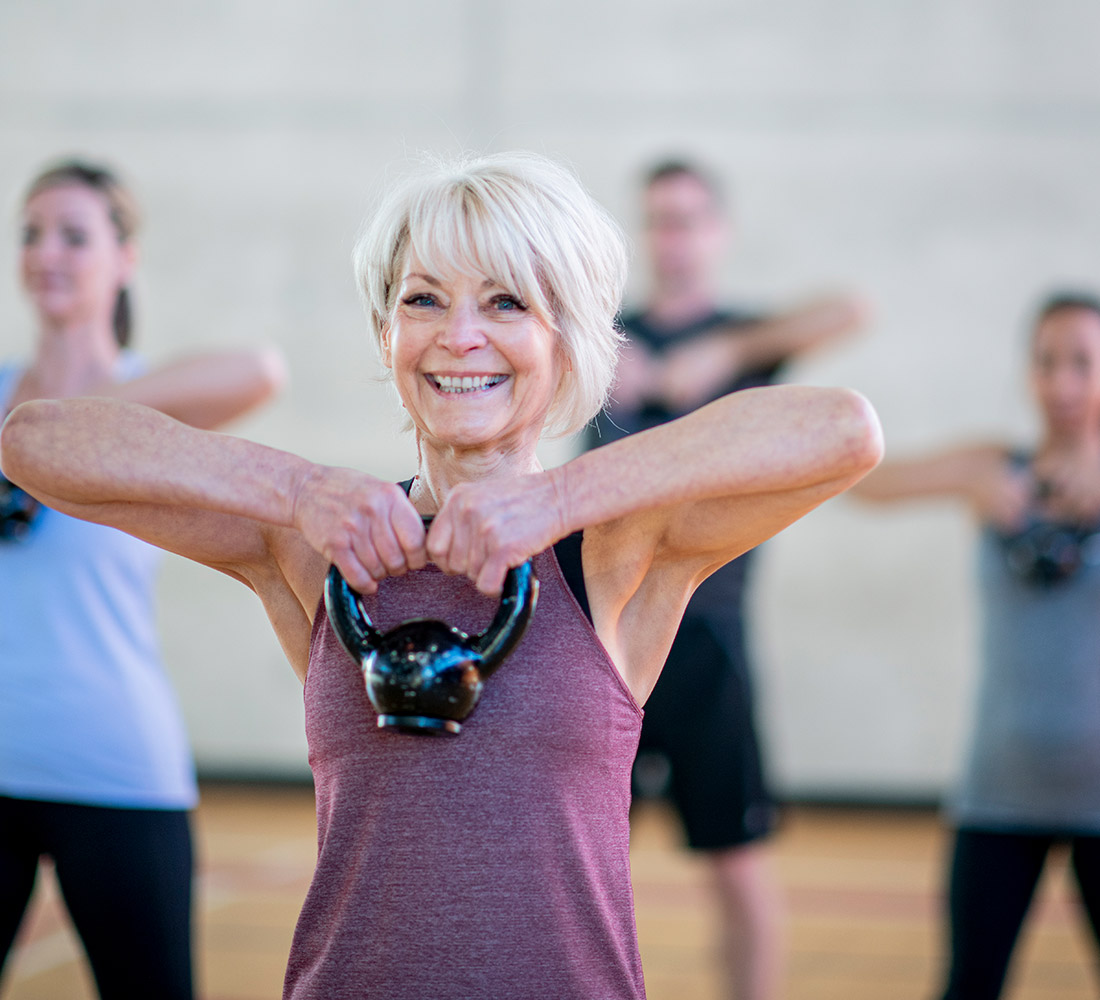
These elements of proper health are meant to function together and influence one another. For this reason, when you or a loved one aim to improve your physical health to help support recovery, it is crucial to consider the complete person. Recovery must be supported by healthy changes to each of these core elements.
Part of accepting and exploring these elements is knowing that self-care is not a mark of an out-of-control ego but a desire to improve overall well-being.
The Impacts of Substance Use Disorders on Physical Health
When you are amidst a substance use disorder, your body can undergo several unhealthy physical changes. Those of particular concern include a slower metabolism, reduced organ function, challenges in mental health, gastrointestinal symptoms (nausea, vomiting, diarrhea), and deficiencies in nutrition that impact the brain, heart, and other vital organs.
Some substances, such as alcohol, can increase the risk of diabetes, high blood pressure, and seizures. As a substance use disorder becomes worse, you could suffer permanent physical effects, including liver damage, a shorter life expectancy, and even malnutrition if the disorder means alcohol is a higher priority than food consumption.
Other substances, such as narcotics like methamphetamines, opioids, and cocaine, have side effects that reduce appetite. This means those who are experiencing physical health disorders as a result of these drugs could lose a significant amount of weight because they may not eat enough nutrients to replenish the body. As nutrition levels fall, so does the electrolyte balance, which impacts the heart and the brain.
The Importance of Physical Wellness in Substance Use Disorder Recovery
Substance use disorders can take a toll on the physical body. The long-term effects of this can last well into recovery after mental health and substance use treatment has been received.
As recovery from substance use disorders progresses, the body must re-establish how to properly function independent of the substances that were introduced. This realignment of the body is an ideal time to establish strong physical health habits. The body is better able to recover because the physical health changes you are introducing help to improve the functions of organs like the lungs, heart, blood vessels, skin, and brain to aid in the recovery process.
As the body recovers, keeping it properly fueled by nutrients from a healthy diet helps to correct the deficiencies in the body’s muscle groups and brain. When the brain is functioning properly, the focus needed to maintain a healthy and consistent lifestyle becomes easier to manage.
The recovery process often produces feelings of anxiety and stress. When this happens, the body tries to rebalance itself by releasing cortisol into the bloodstream and subsequently increasing the heart rate. As the heart rate rises, the body feels it needs to do something to calm itself. In some cases, you may feel the urge to go back to your substance of choice to reduce your anxiety. However, when you replace the substance with physical activity, you will achieve the same balancing effect in a healthier way. This is the reason that many people, both with and without substance use disorder, choose to work out when they are feeling stressed or anxious.
Working on Physical Health in Recovery from Addiction
By adding exercise to your regimen, you increase not only your physical strength but your mental strength as well. The purpose of recovery is to help you reconnect with both your mind and body, so you will want to incorporate exercise that helps with both.
When you exercise, you are rebuilding your bone strength, not just your muscles. That means that not every form of exercise must involve lifting weights in the gym. Here at Lilac Recovery, we support several ways to promote good physical health at our luxury center.
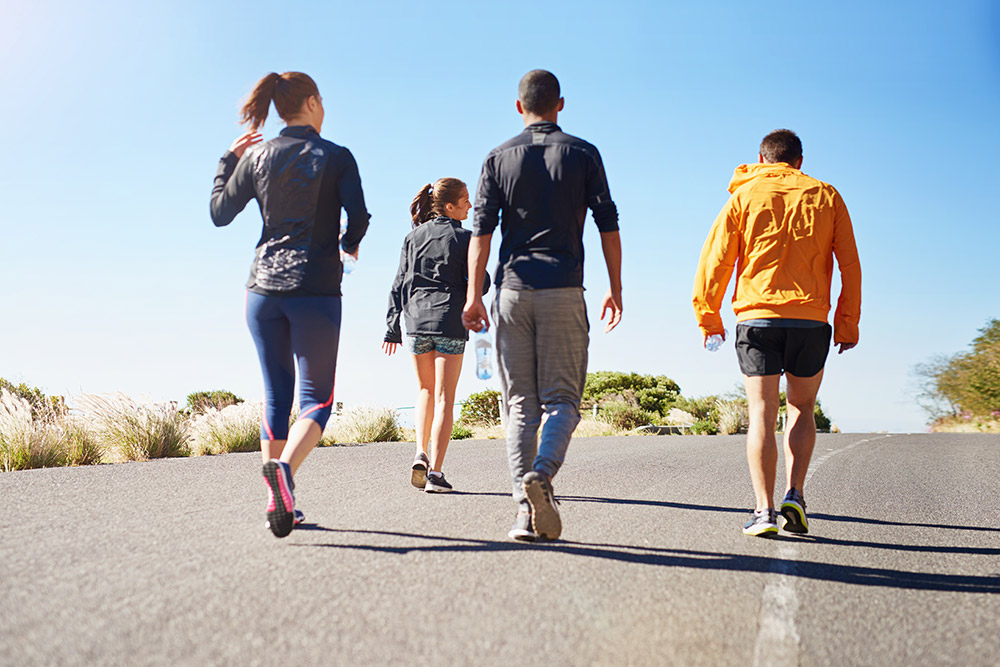
Walking and Hiking
Walking for just 30 minutes a day not only improves your cardiovascular strength, which helps with your blood flow throughout your body, but it also gives you a chance to get outside for fresh air and vitamin D from the sun. If you are ready for more than 30 minutes, consider participating in trail walks or hikes around our beautiful grounds.
Swimming and Aquatics
For those with bad joints, swimming can be a soothing routine. You can swim laps, participate in water exercise programs, or even just walk in the shallow end. The water helps limit the impact on your joints as you step and provides a soothing environment that can offer many benefits for the mind and body. Recovery Cove encourages water activities as a way to address physical health.
Beach Exercise
Our close proximity to the Pacific enables you to participate in swimming, aquatics, and other outdoor exercises in a beautiful, serene setting. The ocean is also considered a source of holistic healing, providing soothing sights, sounds, and sensations during the exercise routine.
Yoga
Practicing yoga is a very important component of a physical health regimen at Recovery Cove. Yoga connects your mind, body, and environment by encouraging you to take notice of how you feel, what it is like to be connected to the ground, and how to be intentional with your body movements. Yoga also encourages good breathing habits, which can help in stressful situations. It’s also an important way to increase core strength and achieve mental calm.
Meditation
Meditation is a great way to exercise your mind and can be paired with many other physical activities we offer at Recovery Cove. According to the Netflix show Headspace, which focuses on the power of meditation, a person who meditates every day for fifteen minutes for six weeks will actually have physical changes in their brain. Meditating allows you to focus on your mind’s well-being while you improve your body’s physical well-being.
Equine Therapy
It takes more physical movement than you might think to participate in equine therapy at Recovery Cove. In fact, the act of walking, riding, or caring for a horse is inherently physical. You’ll also receive many mental health benefits, including trust exercises, decreased anxiety and depression, elevated mood, improved communication, impulse control, problem-solving abilities, and more.
Physical Recreation
Regular participation in other activities, including biking, group hikes, and more, can boost your social skills and address physical needs. Recovery Cove is proud to host a diverse array of opportunities for physical recreation and other fun activities. Each client can find a physical outlet that best suits their needs.
Massage
Massage is an important spiritual and physical health component that is often overlooked. At Recovery Cove, we recognize the value of the relaxing, restoring, and healing properties of massage. Massage can be used after physical activity or as a way to improve blood flow and ease bodily pain without strenuous exercise.
Gym Workouts
The gym at our luxury center is a great way to surround yourself with motivated people who are seeking their own physical fitness goals. It can be easy to quit working out when there is no accountability, but gyms offer the benefit of providing that accountability to friends who are willing to pursue fitness with you. The best part is that most gym exercises can be modified to fit your fitness level, abilities, and preferences.
Nutrition and Exercise in Addiction Recovery
Exercise is great, but balanced with the right nutrition, physical activity can yield even greater results. Understanding how both physical fitness and nutrition work together can provide many benefits to the recovery process.
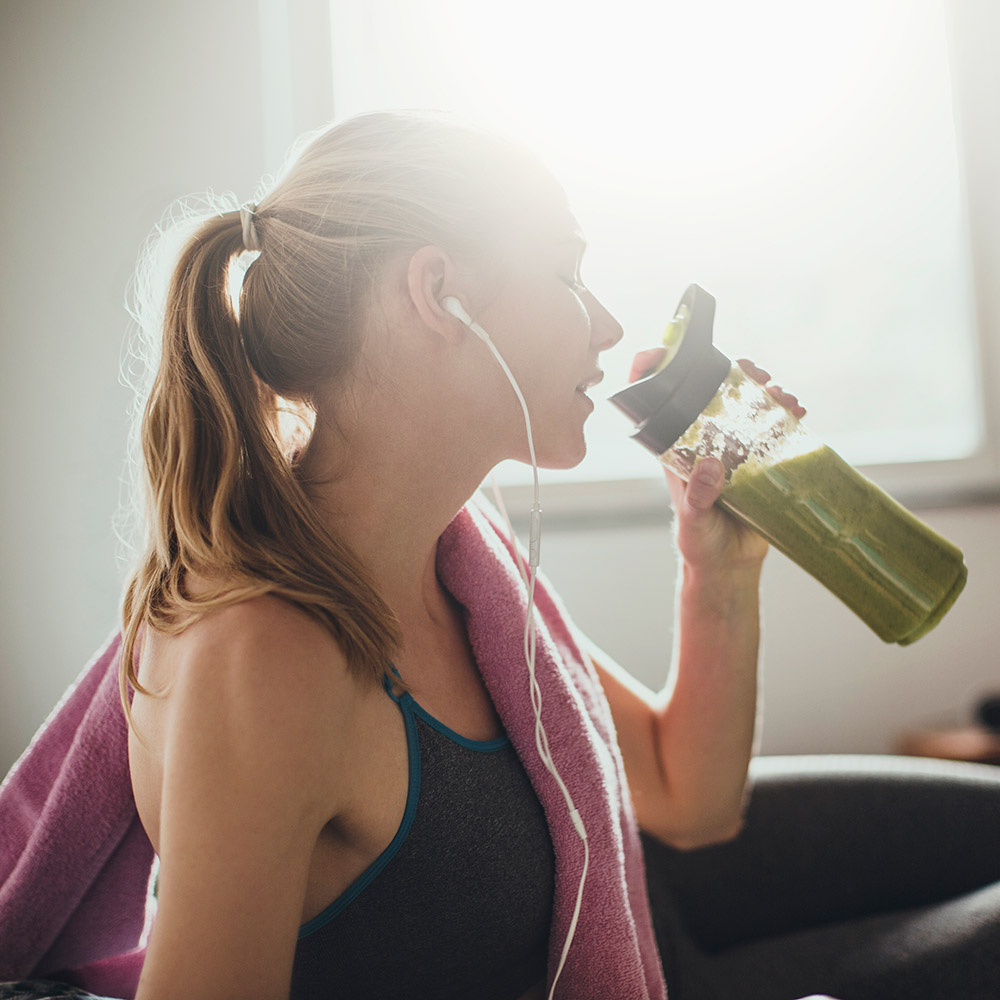
Working on Nutritional Health in Recovery from Addiction
Getting started on your physical wellness journey to improve recovery starts with the right nutrition in your body. There are many simple changes the nutritious, fulfilling meals served at Recovery Cove can help you make to your diet. Changes include:
- Working with a medical professional who can evaluate your body’s current condition and make recommendations. On-staff physicians and nutritionists can ensure each meal is a balanced addition to a healthy diet.
- Switch to eating whole foods. These types of foods are ones that have not been significantly processed and can contribute positively to your nutritional intake.
- Increase your intake of fruits and vegetables. It’s important to expose yourself to a variety of fruits and vegetables with a diverse array of nutrients.
- Eat more lean meat. Replacing full-fat meats with lean meats and non-meat proteins can add protein, omega-3 fatty acids, and other nutrients without putting you at risk for cardiovascular disease.
- Sugar is an inflammatory ingredient and can worsen many bodily conditions. Creating meals with reduced sugar content allows us to reduce your risk of numerous health concerns.
Changing your diet will not create an overnight miracle in your body, but with time and consistency, your body will have what it needs to recuperate. You will also see an increase in your energy levels. Our professionals can help you understand the impact of food on your body’s recovery. We will help you understand your current diet and work with you to make adjustments.

Physical Health Services at Lilac Recovery Center
Your substance use disorder can wreak havoc on your relationships, employment, and finances, but too often, it can be easy to forget the damage that it does to your body. Focusing your efforts on nutrition and physical health in addiction recovery can strengthen your mind and body to fight the addiction, cope with the stress, heal, and move forward.
At Lilac Recovery Center, we offer our clients the tools and resources they need to set them on the right path. At our state-of-the-art luxury facility in San Diego, our clients are provided with a safe and comfortable place to begin their journey toward recovery. Our facilities offer yoga, meditation, massage therapy, and more, along with the availability of medical professionals who can supplement proper diet and exercise with necessary medications to help you through the recovery process. The intimate setting of our facility allows us to focus your recovery on you. In fact, we believe that each person and their situation is unique, so our care is unique to their needs.
At Lilac Recovery Center, we believe in helping you reach your fullest potential by teaching you the tools and strategies you need to overcome the obstacles of substance use disorders and the hardships of recovery. If you are ready to take the first step on your journey, contact us today.
